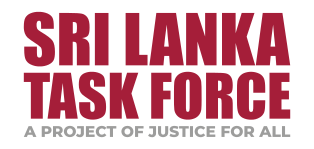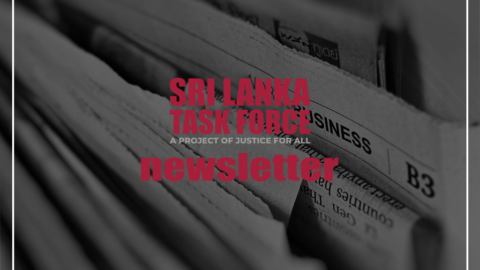The UK’s High Commissioner Sarah Hulton met with Sri Lankan Public Security Minister Rear Admiral…

Statement: Sri Lanka’s examination rules discriminate against Muslims
July 11, 2024
Justice For All is concerned by the latest instance of systemic bias and Islamophobia in Sri Lanka. Recently, school authorities decided to withhold the examination results of 70 Muslim students from Zahira College in the City of Trincomalee because of a policy that mandates leaving ears uncovered during exams. This policy discriminates against Muslim girls who choose to follow religious modesty guidelines and wear hijab. Because of this, the policy disproportionately affects Muslim girls. It perpetuates a climate of religious discrimination against Muslim citizens in Sri Lanka.
The implementation of prejudicial rules by Sri Lanka’s Examinations Department also mirrors a similar incident in October 2023, where 13 Muslim women were denied their results for principal-appointment exams due to wearing hijabs, despite initial compliance with ear visibility requirements. According to Muslim students, such rules disrupt their academic progress and send a broader message of exclusion and intolerance.
This action has far reaching consequences including the denial of university education to Muslim students, who overcame many hardships to give A levels exams. “There has been a rise in intolerance towards those who observe hijab in Sri Lanka, especially in public institutions such as hospitals, schools and public transport. We appeal to the government to ensure religious freedoms of students are protected,” said Imam Abdul Malik Mujahid, President of Justice For All.
Justice For All is also concerned that the rise of Hindu nationalist movements in Sri Lanka have increasingly targeted Muslim communities. For instance, in 2018, there were violent protests against Muslim teachers wearing abayas at Shanmuga Hindu Ladies College. Hindu nationalist organizations like Ravana Senai have capitalized on these tensions, spreading false narratives about demographic threats and cultural imposition by Muslims.
In recent years, Sri Lanka has enacted numerous regulations that target and marginalize Muslim minorities. Notably, during the Covid-19 pandemic, the government prohibited the burial of individuals who died from the virus and instead mandated cremation, causing significant anguish among Muslim families whose religious beliefs forbid this practice. Additionally, there have been numerous instances of anti-Muslim violence, often incited or worsened by baseless accusations that are propagated without consequences for officials and government supporters.
Justice For All calls on Sri Lankan authorities to address these systemic injustices by adopting a rights-based approach. School policies must respect religious freedoms and ensure that all students have equal access to education without fear of discrimination or reprisal.

